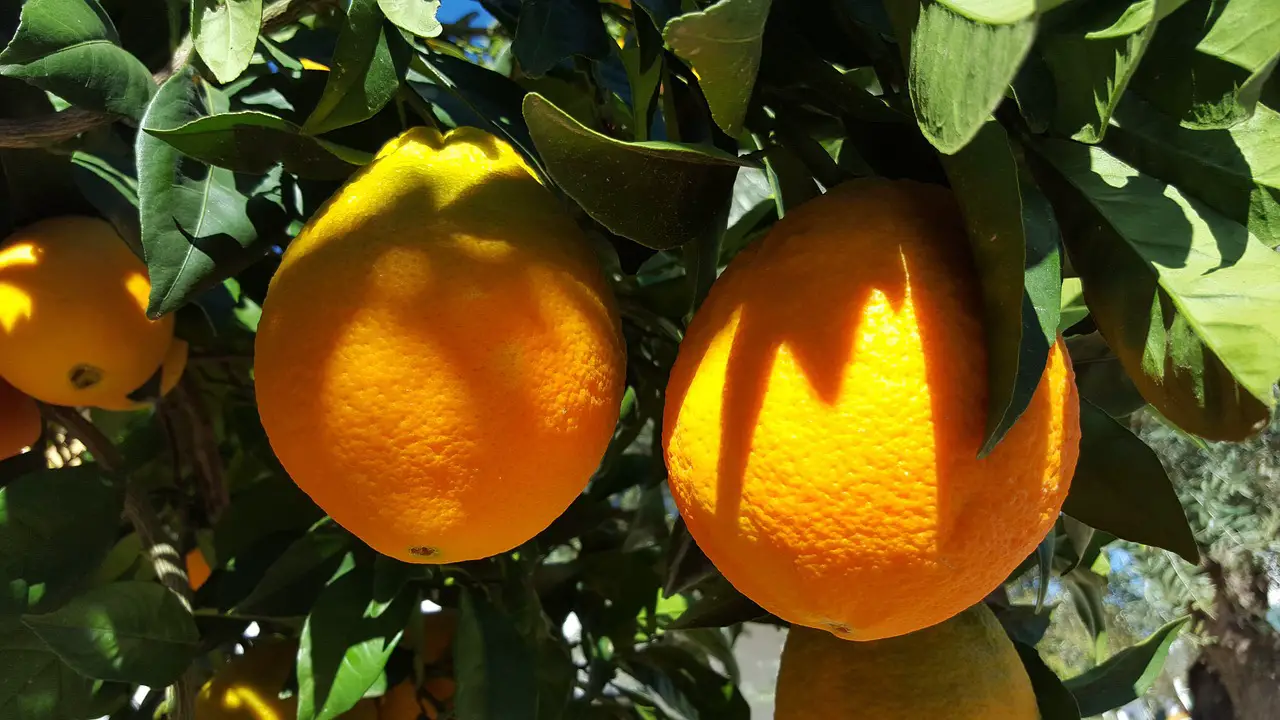Valencia oranges are a popular variety of orange, known for their sweet and juicy flavor. They are commonly used for juicing but can also be enjoyed as fresh fruit. With a rich history and various applications in the culinary world, Valencia oranges are a staple in fruit baskets and grocery stores alike. One question that commonly arises is, do Valencia oranges have seeds? This article seeks to answer that question and explore various facets of this beloved orange variety.
Valencia oranges generally contain seeds, but the number can vary. Seedless variations are also available, but traditionally grown Valencia oranges will most likely have a few seeds.
What Are Valencia Oranges?
Valencia oranges are a sweet orange variety with a thin, easy-to-peel skin and a juicy, sweet interior. They are mainly grown in the United States, particularly Florida and California, but they are also cultivated in other parts of the world like Spain and South Africa. Valencia oranges are often recognized for their vibrant orange color and are usually available from late spring to early fall.
Are Valencia Oranges Known For Being Seedless?
Valencia oranges are not specifically known for being seedless. While you may find some seedless varieties, traditionally grown Valencia oranges generally do contain seeds. The number of seeds can vary, but it’s not uncommon to find between 0 and 6 seeds in a Valencia orange. If you prefer seedless oranges, you may want to look for specific cultivars that are bred to be seedless.
How Many Seeds Can One Valencia Orange Have?
When it comes to the question, do Valencia oranges have seeds, the answer often lies in how they were cultivated. A Valencia orange can have anywhere from zero to a handful of seeds, usually not exceeding six. The number of seeds may vary depending on factors such as the growing conditions and whether the trees were isolated from other seedy varieties during pollination.
What Factors Affect the Seed Count in Valencia Oranges?
The seed count in a Valencia orange can depend on a variety of factors including the age of the tree, the environmental conditions, and the presence of other citrus varieties nearby. Cross-pollination with seedy varieties can result in Valencia oranges having more seeds. If Valencia orange trees are isolated and selectively bred, it is more likely that the fruits will contain fewer seeds.
Is There a Seedless Variety of Valencia Oranges?
Yes, seedless varieties of Valencia oranges do exist, but they are not as common as the traditional, seeded types. These seedless varieties are often the result of specific breeding programs. However, even in seedless varieties, there may be occasional seeds due to cross-pollination with seeded types.
How Do Valencia Oranges Compare to Other Orange Varieties in Terms of Seeds?
Compared to other orange varieties like Navel or Cara Cara, Valencia oranges are more likely to contain seeds. Navel oranges are generally seedless, making them a more convenient option for those who prefer not to deal with seeds. However, many people find that the seeds in Valencia oranges are easy to remove, especially when using the fruit for juicing.
What Are the Culinary Implications of Seeded Valencia Oranges?
Seeds in Valencia oranges generally do not pose much of a problem in culinary applications. When juicing, the seeds are usually strained out, and if you’re consuming the orange in slices, the seeds are easy to remove. In recipes requiring orange zest, the presence of seeds is irrelevant as only the outer skin is used.
Are Seeds in Valencia Oranges Edible?
Technically, the seeds in Valencia oranges are edible but are generally not consumed due to their bitter taste and hard texture. Some people believe that orange seeds contain small amounts of cyanide, but you would need to consume a very large number of seeds for it to be harmful. Generally, it’s best to remove the seeds before eating or juicing.
How to Choose Valencia Oranges If You Prefer Them Seedless?
If you prefer seedless Valencia oranges, it’s essential to read labels carefully when shopping. Some producers label their fruit as seedless if they belong to a seedless cultivar. You can also inquire directly with growers or sellers to ensure you’re getting a seedless variety. Additionally, seedless Valencia oranges may sometimes be available at farmer’s markets where you can talk directly to the grower about the fruit’s characteristics.
Conclusion
Valencia oranges are cherished for their sweet, juicy taste and versatility in various culinary applications. When it comes to the question, do Valencia oranges have seeds, the general answer is yes. However, the number of seeds can vary based on a number of factors such as growing conditions and cross-pollination. While seeded Valencia oranges are more common, seedless varieties do exist for those who prefer not to deal with seeds. Regardless of the seed content, Valencia oranges remain a popular and delicious choice for orange enthusiasts worldwide.

